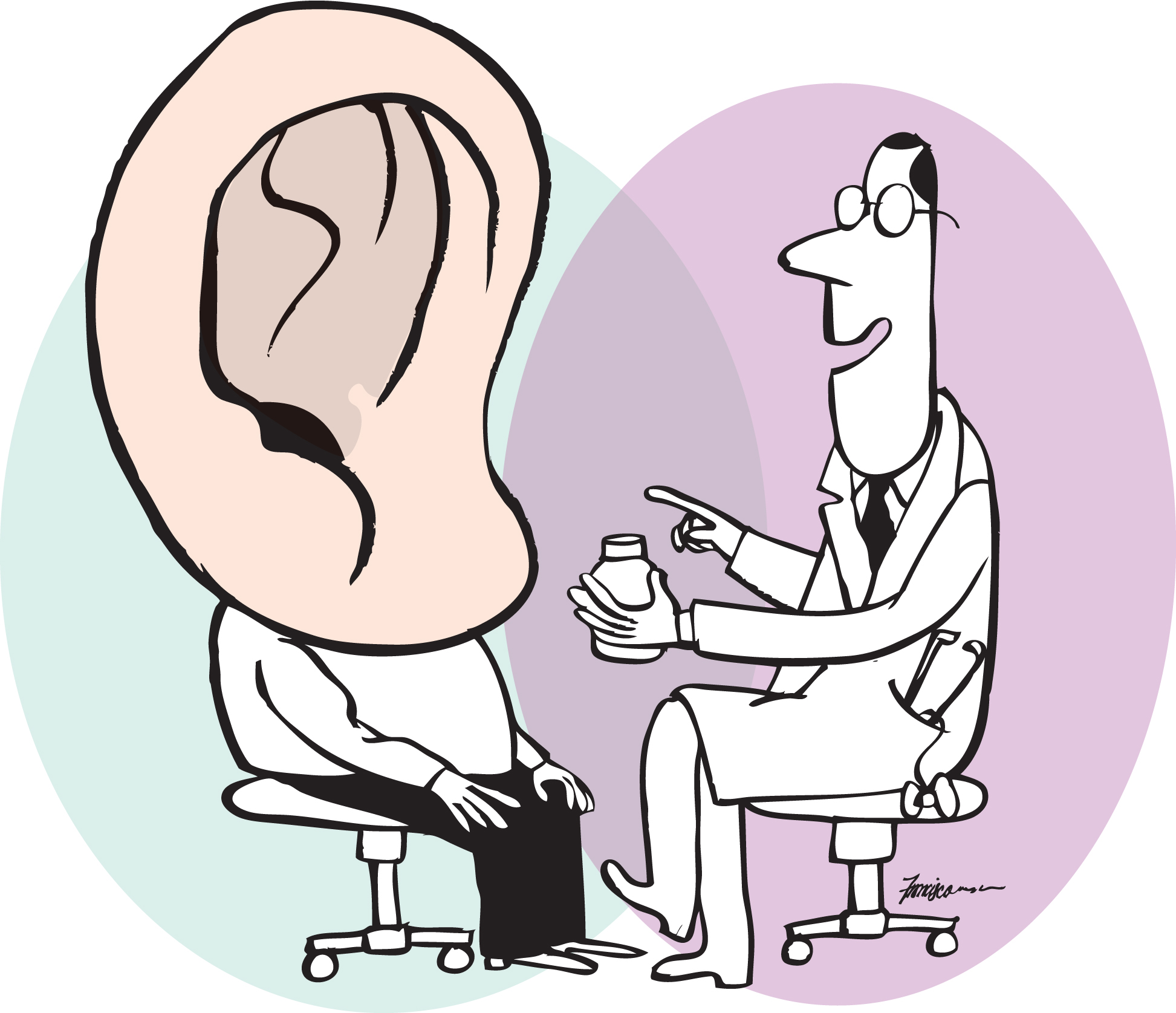Poor communication between doctor and patient is a hot topic.
The topic of discussion between doctor and patient can change but one thing does not. That is, the common basis for successful communication between two parties is mutual respect.
Respect comes from showing you value the other person's time, concerns and effort. Therefore, in a consultation, as with any conversation, it is important to listen. That's the first step to take.
The second step is to show that you have heard what was said. This acknowledgement can be in the form of active listening.
You can paraphrase the answers, summarise them or ask questions to show that you have absorbed all that the other party has said.

I have had to learn this lesson several times during my training.
When a patient asked me a question that concerned him, my reply was aimed at addressing what I thought he was worried about. I did not answer his question.
So, when he repeated his question, it was like a wake-up call: "Oh gosh, I wasn't listening!"? Fortunately, I had good teachers who pointed this out to me.
In such a scenario, a patient who senses that the doctor is not listening to him is unlikely to return to see this doctor.
There have also been times when I wonder if the patient is listening. This is most evident when I get perpetually interrupted before I can explain anything or ask any questions.
A recent exchange I had with a patient's mother went like this:
Mrs A: "I'm worried about the rash my child has. I think he has a food allergy."
Me: "Okay. Can I find out..."œ
Mrs A: "Can this be a seafood allergy?"
Me: "That's possible. Can you..."
Mrs A: "My friend said it could be the environment. What do you think?"
I understand that she is anxious. However, if this continues, the consultation simply grinds to a halt. It becomes almost impossible for the doctor to get the information to figure out the cause of the problem. He may have to make a guess or be inclined to agree with everything the patient says.
When we fill our minds with our fears and biases, or are busy thinking about we want to say, we won't be able to listen.
If mutual respect is absent, neither party has the ability or desire to fulfil the other person's expectations. Consequently, the outcome won't be optimal.
A satisfying doctor-patient consultation is one where both parties listen to and value each other.
On the other hand, cases where nagging is involved or where the same questions get repeated over and over again show that one party did not listen to the other party, or vice versa.
Listening is difficult for two reasons. Firstly, it is easy to forget that the other person is different.
Secondly, our biases, our pre-conceived notions about others and our ego can cause us to make negative (and, often, wrong) assumptions about others.
As doctors, it is easy to forget that the patient often knows his own symptoms better than we do.
As patients, we carry our anxieties about our own health into the consultation. We carry the burden of a bad experience with healthcare professionals with us.
And we carry our ignorance into the consultation. It is important to not let these factors control you and make you dismiss the doctor.
Just as the patient wants the doctor to respect and acknowledge what he is saying, the patient has to trust and respect the doctor.
Rudeness or insisting on a personal, but uninformed, opinion is not helpful in a doctor-patient relationship.
Respect is not the same as agreement or obedience. If the patient feels something is amiss, he can seek a second opinion.
But, first, he should keep his mind open, listen carefully and think about everything the doctor has said, before responding appropriately. This holds true even when you are communicating with others on a personal level.
•Dr Soh Jian Yi is a consultant in the division of paediatric allergy, immunology and rheumatology at the National University Hospital.
•This is the first of two articles by Dr Soh on doctor-patient communication. The next one will be published on Nov 22.

